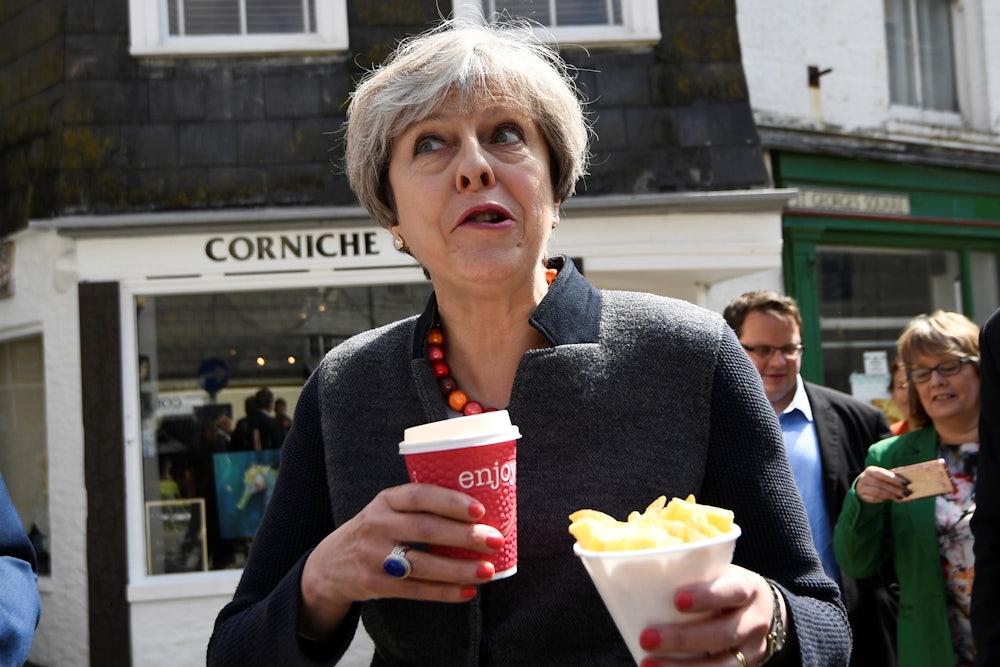May’s decision to call a snap election six weeks ago was, among other things, a slap in the face of Labour Party leader Jeremy Corbyn. The conventional wisdom at the time was that Corbyn was a weak leader unable to attract anything close to broad support—often treated as a mash-up of Stalin and Lenin by the UK media, some predicted that Labour would be decimated in the election and that May would garner a level of support not seen since Margaret Thatcher.
There was another way of looking at May’s decision to call a snap election, however, which was that it was made from a position of weakness rather than strength. May became prime minister by default after the fallout from Brexit and was unable to solidify her position in her first year in the job. Relatedly, British support for Brexit was narrow to begin with and has waned in the intervening months—May felt she needed a show of support to push a break with the European Union to the finish line and seems to have calculated that there was no better time than the present. Finally, there’s what can only be called the Trump Effect—November 8 increasingly looks like the high water mark of the global far-right, at least for now.
Looking at the results from Thursday’s election that all may very well be true, but that only underscores the fact that May’s decision to call a snap election is possibly the biggest political screw-up ever—its closest competitor, funnily enough, is David Cameron’s decision to call a vote on Brexit. While May’s Conservative Party won the majority of seats, it looks like it will come nine short of a governing majority. Given the makeup of the rest of Parliament, there’s no guarantee that she’ll be able to form a coalition government.
May, her party, and the British media vastly underestimated Corbyn’s abilities as a campaigner, the strength of the Labour Party’s manifesto, its ability to convert Brexit voters, the sick, and the wealthy, and, most importantly, Corbyn and Labour’s support among young people. Buyer’s remorse over Brexit also undoubtedly played a role. And then, of course, there’s May herself, who ran what might have been the worst campaign in recent memory. The Conservative Party’s manifesto, with the now famous “dementia tax,” was a disaster. May’s response in the wake of terrorist attacks was to pledge to dramatically curtail on civil liberties, a transparent, breathtakingly cynical, and shameful bit of fearmongering. May was unable to articulate any reason to vote for the Conservative Party beyond the fact that it was not led by Jeremy Corbyn (sound familiar?), a tactic that backfired spectacularly, particularly after the release of Labour’s manifesto.
The result was a humiliating defeat. Many expected that the results of the election would end in May strengthening her position and Corbyn resigning from his. The exact opposite seems to be happening. And Theresa May has no one to blame but herself.
